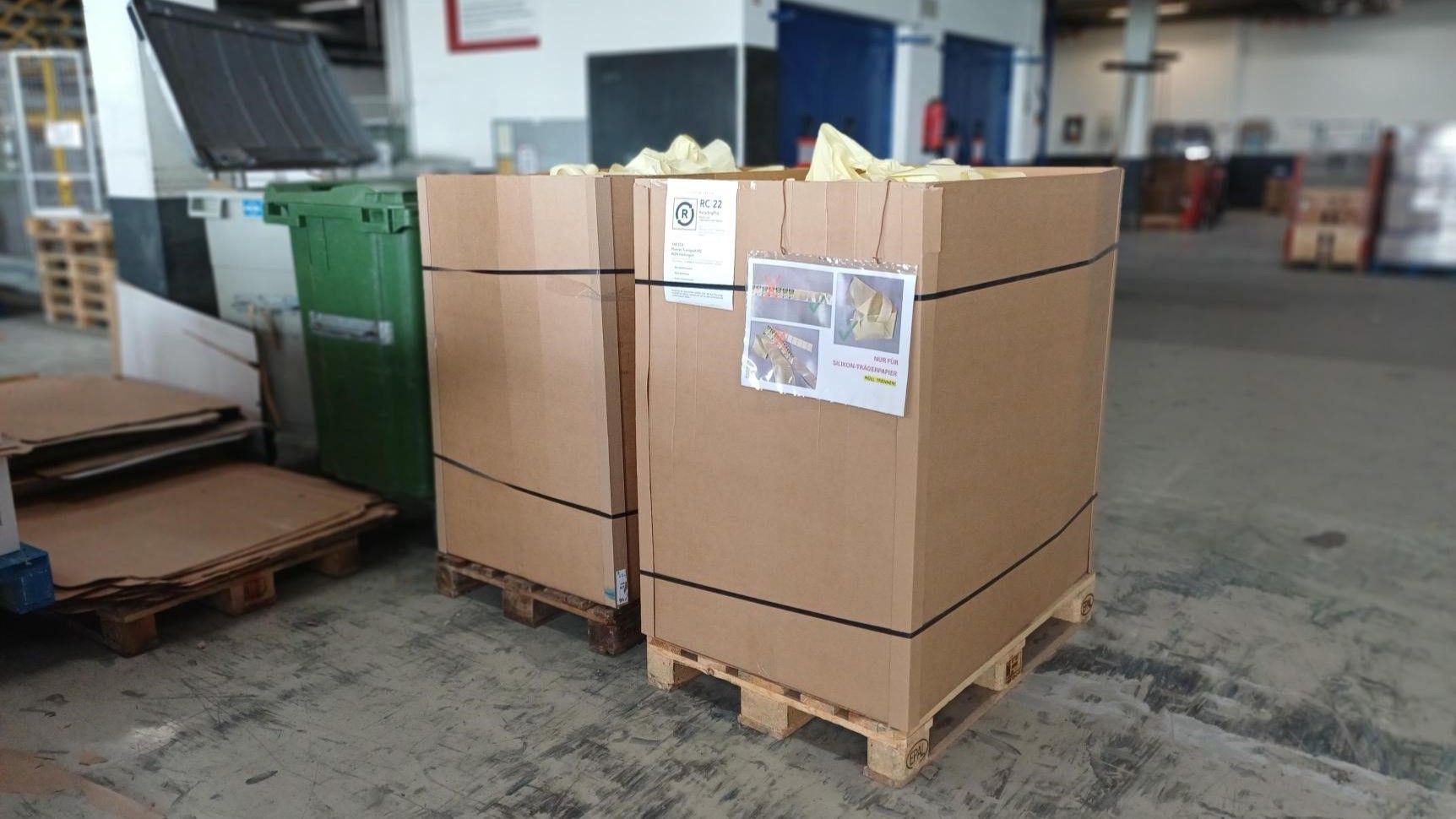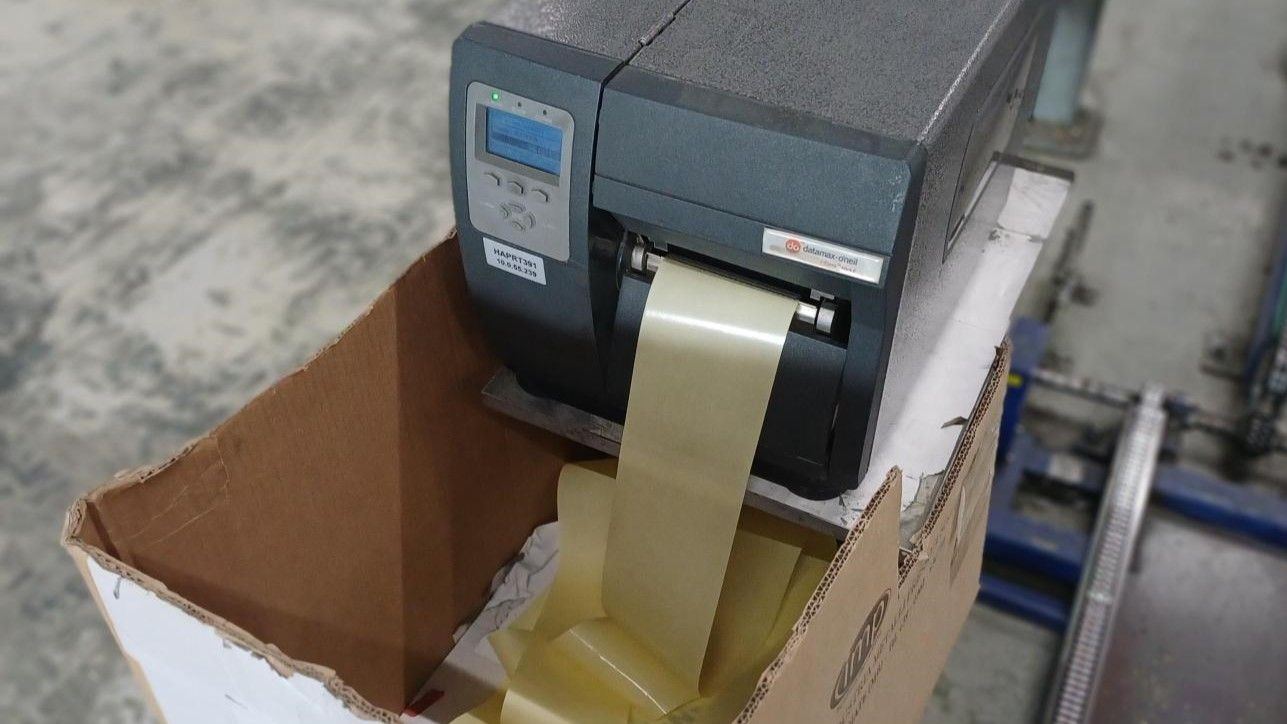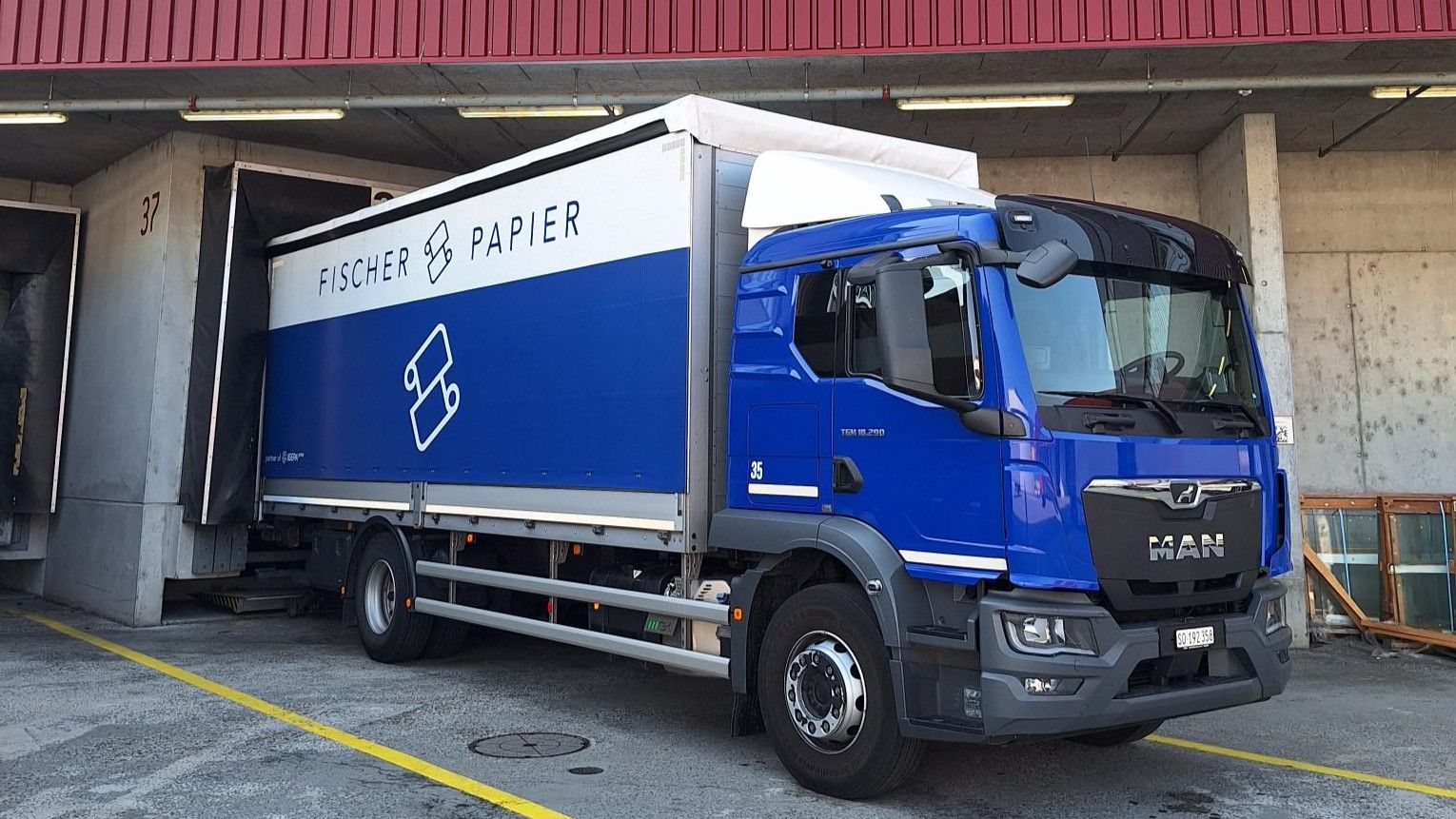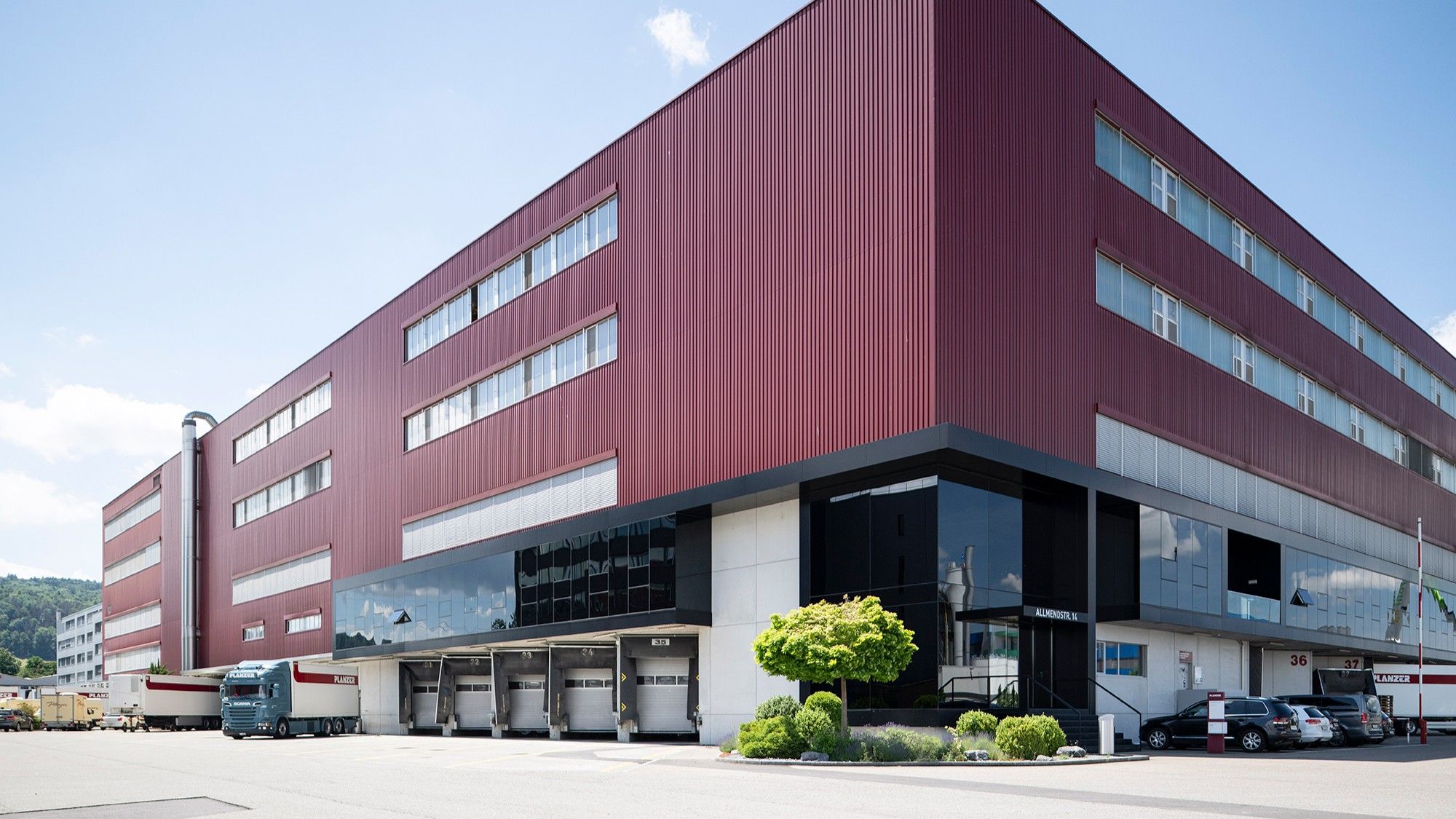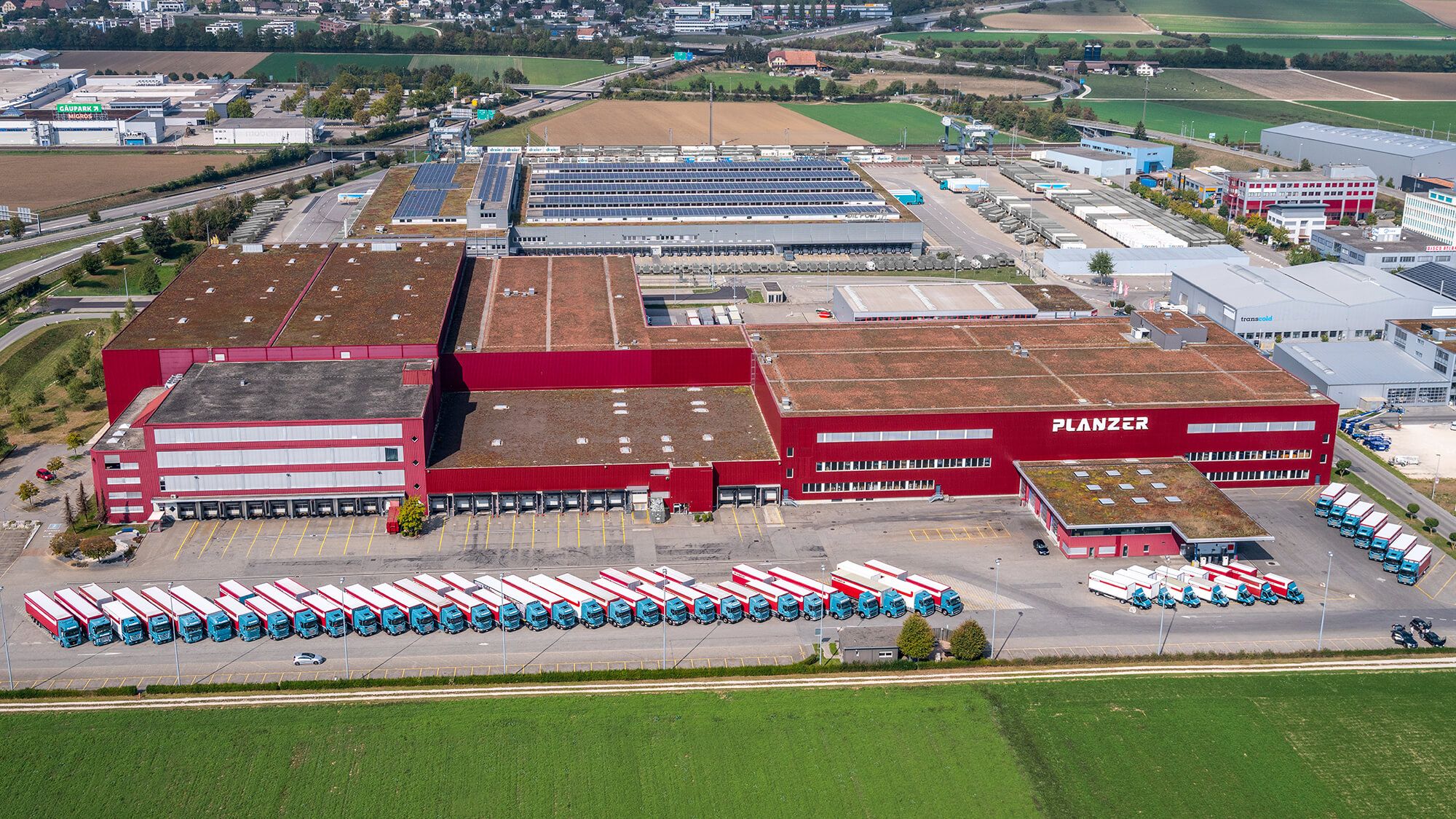Practical, but not entirely environmentally friendly
Everyone needs them, and no one thinks twice about them: labels. Whether in the warehouse, handling or dispatch – reliable marking of parcels and transported goods with labels containing the right information ensures security and speed, while also meeting the growing demand for the customisation of shipping units. At our location in Härkingen alone, we use 40 million labels every year for marking products, promotional packaging that we prepare for retailers and all other shipments that leave the company. The major problem with this is that labels stick to silicone-coated backing material, which is usually burned as residual waste, causing significant damage to the environment.
Back in the cycle
There is a better way. In Härkingen, the idea arose to take up and test a new service offered by Fischer Papier: ‘Recycling of silicone-coated backing paper’. The idea was tackled and implemented in collaboration with our internal ‘Planzer Workbench’ innovation programme. Working collaboratively and straightforwardly, we jumped on board at an early stage and are now taking advantage of this offer – because we believe in it. The process is a prime example of a forward-thinking circular economy and makes it possible to extend the product life cycle of materials.
- Fischer Papier provides us with special containers in Euro pallet format.
- We use these to collect the silicone-coated backing material in Härkingen and now also in Villmergen. As we do so, we ensure that no paper with labels still attached ends up in the containers.
- When a container is full, the staff inform Fischer Papier’s recycling service.
- Fischer Papier schedules the collection on its standard routes and usually collects the containers directly from our locations the following day. This eliminates unnecessary empty runs.
- To compact the material, Fischer Papier has invested in a high-tech shredder. This will maximise the compaction of the backing material in the collection containers in the future, enabling more material to be processed.
- The compacted material is now sent to a paper producer of Fischer Papier. There, it is stripped of silicone and recycled in special facilities using innovative technologies.
- The recycled paper is returned to Switzerland, where print shops turn it into paper shopping bags or packaging paper, for example.
- End customers can purchase the products from retailers.


